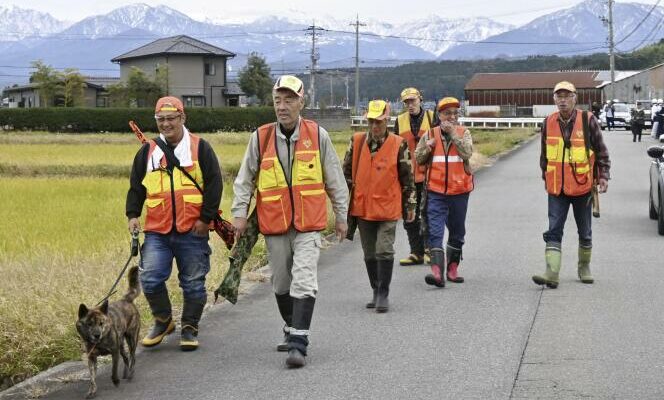A real psychosis of bear attacks is spreading in Japan. Two hundred and twelve people were attacked between April and November in 193 attacks by the powerful mammals. Six died, reported Friday 1er December the Ministry of the Environment. This toll, the heaviest since these data were recorded in 2006, is attributed to demographic and climatic changes in the archipelago.
The importance of the phenomenon prompted the ministry to dispatch experts and release funds to help local authorities monitor bears and implement security measures. “The important thing is to keep the bears at bay. We ask people to be careful with their rubbish and to store fruits such as persimmons well so as not to attract them”explained the Minister of the Environment, Shintaro Ito.
Seventy percent of the attacks took place in the northeast of the country, mainly in Iwate and Akita departments. In the town of Akita, children go to school carrying bells whose ringing should keep bears away. Schools prohibit playing outside. Many residents carry pepper spray canisters. The Akita department offers 5,000 yen (31 euros) to hunters for each bear killed. And calls for caution are increasing for mountain activities.
Exceptionally hot summer
Japan is home to two species of bear. Brown bears live on the large northern island of Hokkaido, and Asian black bears live on the main island of Honshu and Shikoku (West). After having been hunted for a long time, these mammals have benefited from protection measures since 1990. They begin to hibernate in November or December, lasting until April or May. There are nearly 15,000 bears across Japan, according to government data from 2014, the latest available. Every year, several thousand are trapped or hunted; 2,600 were in April and August. Exercises are regularly organized to raise awareness about what to do if a bear is reported.
To hibernate, bears must have accumulated sufficient fat by consuming Japanese oak acorns (mizunara) and beechnuts, the fruit of the beech tree. However, summer was exceptionally hot and dry throughout Japan with “considerably higher temperatures” to seasonal norms, according to the Japan Meteorological Agency. The 2023 average was 1.76°C above usual norms. The gap has never been so significant.
You have 45% of this article left to read. The rest is reserved for subscribers.
